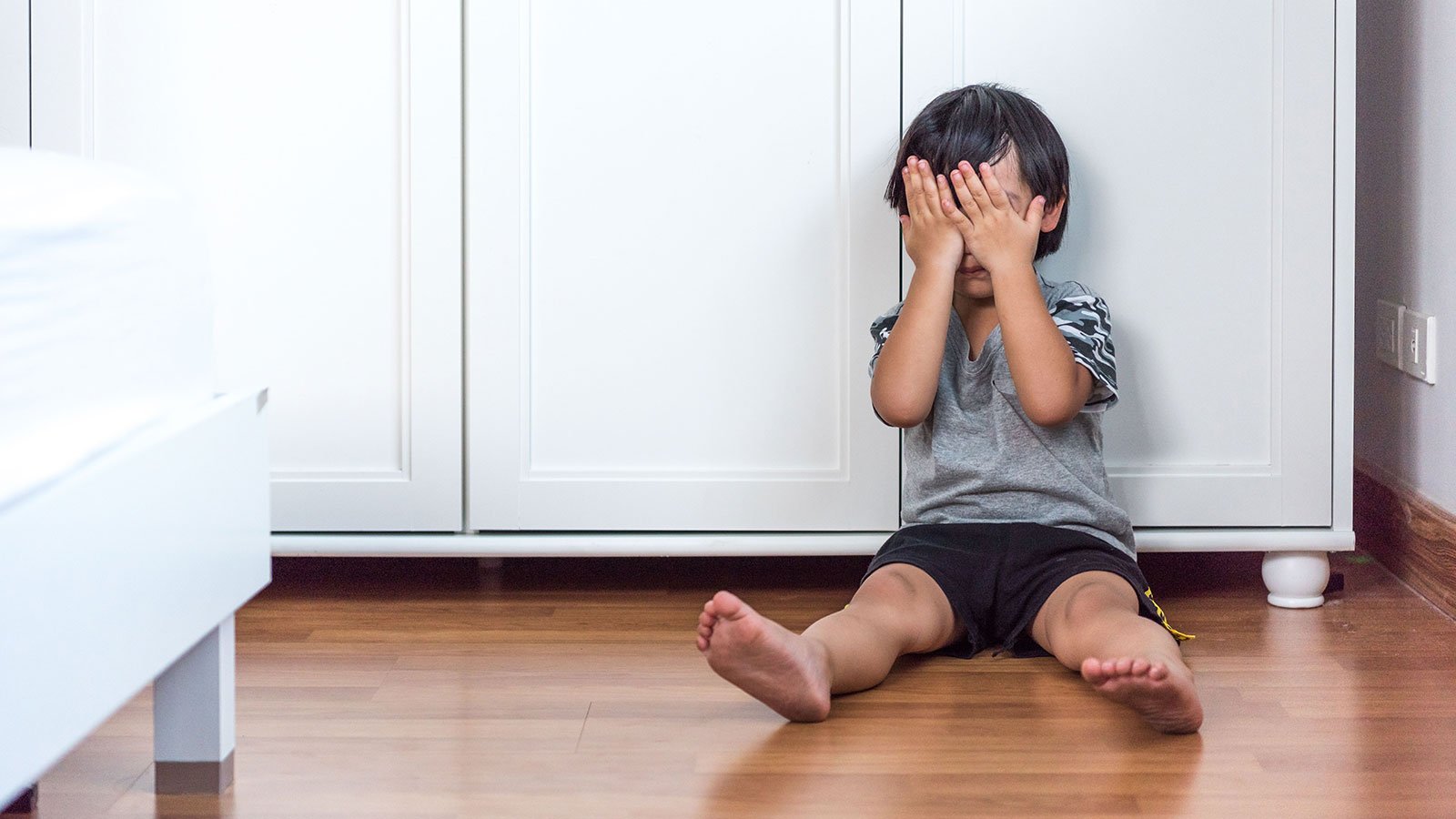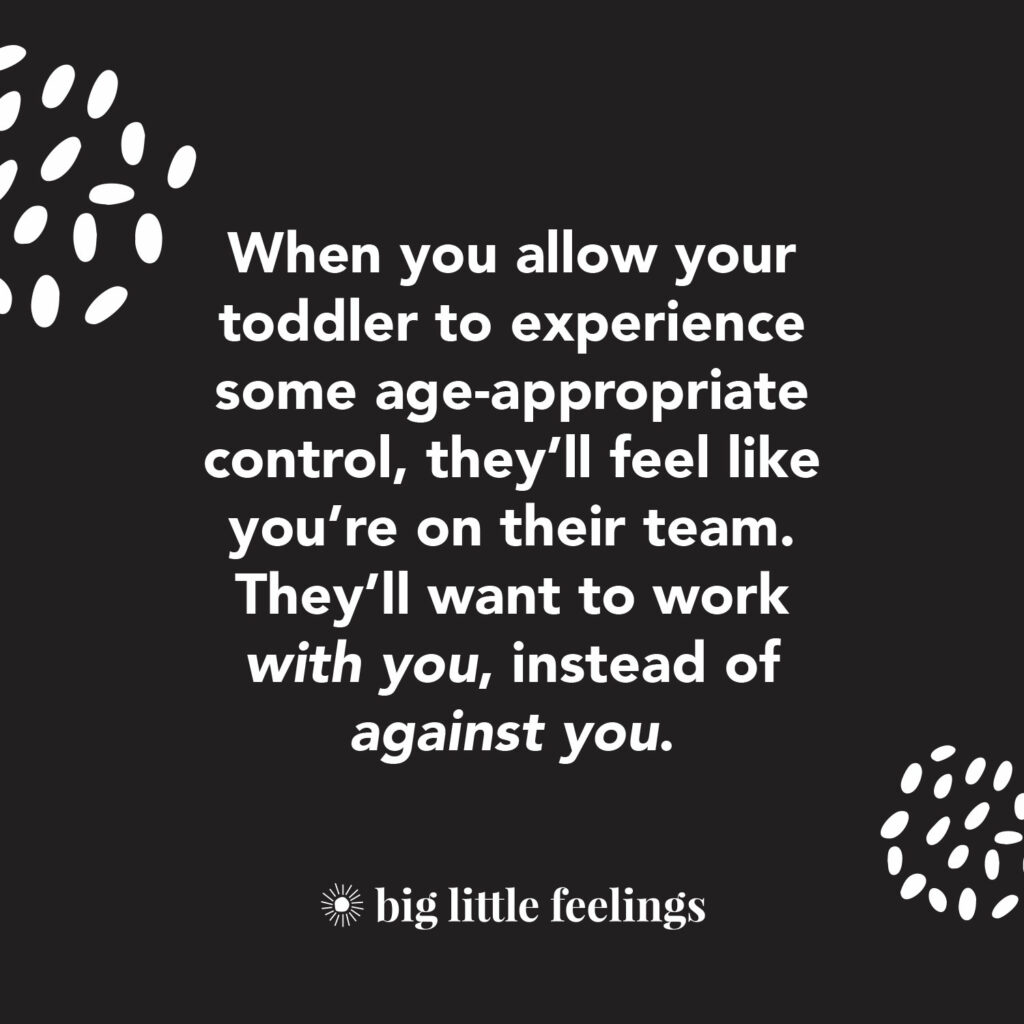

The Do’s and Don’ts of Toddler Discipline
How to Curb Unwanted Behavior Using Related Consequences
Gather ‘round warrior parents, because the time has come to discuss the hot topic sliding into our DMs on the daily. You may want to sit down for this one. At the very least, gird your loins.
It’s time to talk about the d-word.
Yep: DISCIPLINE. Dun.dun.duuuuuuuuuuun.
Discipline is SUCH a tricky topic. And errrbody has an opinion about the best way to shape “good” behavior. Including people who don’t even have kids.
Meanwhile, you’re just trying to turn a tiny human into a healthy, well-adjusted grown-up who contributes to society. But with all the “helpful” advice, opinions—and the continued misbehavior from your kid—it’s enough to put you in the fetal position.
If we could show up on your doorstep right now with a soft blanket and an adult beverage, we would. But since we can’t, we want you to imagine us with our mom buns and yoga pants, sitting next to you in solidarity, as we tell you these truths:
- You are a good parent who wants good things for your child.
- Discipline is hard and confusing.
- It is possible to curb misbehavior while also protecting your child’s self-worth and self-esteem.
- You already have everything you need to do this well. You may just need a little help and new way of viewing the term “discipline.
So let’s dive in and get you OUT of the fetal position, shall we?
The Reason Your Approach to Discipline May Not Be Working
First of all, you may remember from our online course, Winning the Toddler Stage, that the world discipline actually means TO TEACH, not to punish. We want to teach our kids how to shift from unwanted behavior to wanted behavior.
When an attempt at discipline doesn’t work, it’s often because the discipline tactic is rooted in punishment, aka fear. Punishment based discipline SEEMS to work in the moment because fear activates the fight, flight or freeze response in the brain. So, your toddler stops hitting right in that moment (freeze), BUT after the punishment is over, he repeats the SAME behavior. WTF is that?!?
Well, fear is a terrible teacher, and it doesn’t usually work for long term change.
Instead? Be the calm, confident leader of your home and use a Related Consequence.
Let’s tackle an example IRL. Picture this scene with us, will you?
You’re having a lovely day at the park with friends, when Toddler #1 throws a ball in Toddler #2’s face. And after telling him to stop it…please, stop it…OMG WE DO NOT THROW BALLS IN FACES, you’ve finally had enough. You throw your hands in the air and scream, “IF YOU THROW THE BALL ONE MORE TIME, YOU WON’T GET DESSERT TONIGHT!”
We don’t need a crystal ball to see the future of this encounter, do we?
Toddler #1 throws the ball again. So you yell, pack up the kids, and wonder why no one told you parenting would be this hard. Or embarrassing.
Now, fast-forward to dinner.
You’re clearing the plates and passing out dessert to everyone. Except Toddler #1. Because he lost dessert privileges on account of the whole ball-in-the-face thing, remember? And you’re trying to be consistent with consequences.
Good job thinking about consistency! Except this particular application of consistency isn’t gonna work, and you’re about to find out why.
Your toddler is now looking at you like you’ve sprouted horns, and they’re on the verge of the most epic meltdown of all time because heeeeee wannnnnnnnts desssssseeeeeerttttt toooooo. Whyyyyyyy heeeeeee nooooooooot get cookies?!
So you TELL him why.
But even after you remind him of his foray into one-man dodgeball at the park, he STILL doesn’t get it, and now he’s on the floor in a puddle of despair.
End scene.
While this seems crazy, THIS reaction actually has a very clear explanation.
Toddler brains are continually under construction, trying to make sense of how the world works. They don’t always connect the dots from one experience to the next, and time is a very hard concept for the toddler brain, which causes toddlers to often feel overwhelmed and confused.
Like, you’ve seen how your toddler manages to “forget” how bedtime comes after bath time despite it happening exactly the same way, every ding dang day, right?
So why did the no dessert punishment not work? Two reasons:
- It’s difficult for toddler brains to recall the events of something that happened at the park five hours earlier.
- There is ZERO logical connection between them misusing their ball and losing dessert. Like, what do those things have to do with one another?
Side note: Elevating dessert as a reward comes with its own set of issues aka mealtime battles, which we help you navigate in our online course, Winning the Toddler Stage.
If you want to curb misbehavior, your toddler has to understand the connection between their behavior and the consequences. Without this connection, there will be no correction.
On the other hand, once they start to get the connection between what they do and what happens as a result, they’re empowered to make different choices.
Use Related Consequences to Manage Unwanted Behaviors
Related consequences (sometimes referred to asl logical consequences) are completely and directly related to the undesired behaviors.
Let’s rewind the tape on our park day and use a related consequence instead.
You: Having a lovely time at the park. The air is cool and crisp. The sounds of happy children fill your ears.
Toddler #1: Smashes ball in Toddler #2’s face.
Toddler #2: Starts wailing like a banshee.
You: Walk over to Toddler #1, and using a calm, cool voice, you say, “Balls are for bouncing. Balls are not for throwing at faces. I see you’re having a hard time playing with the ball, so the ball is going bye-bye. We’ll try again tomorrow. Let’s check on Toddler #2 now to make sure he’s okay.”
Because the consequence was both quick and relevant, you’ve set up your toddler’s brain for success. Now those synapses are firing and saying, “Hmm, when I used the ball to smash brother’s face, I didn’t get to play with the ball anymore. So if I want to play with the ball, I can’t smash it in people’s faces.”
It may take a few more encounters with the related consequence for your toddler to really pick up what you’re putting down, but research shows related consequences work.
And they work without you having to yell, shame, threaten, or be the parent you’ve always SWORN you wouldn’t be.
Here are a few other examples to tuck in your back pocket:
Undesired Behavior / Related Consequence
Running into the street / Holding hands or going in stroller
Throwing the iPad / iPad goes on the shelf for the rest of the day
Drawing on the walls with markers / Take away markers for afternoon
The more you practice related consequences, the faster you’ll come up with them. Your consistency will result in fewer of those unwanted behaviors, and your toddler will learn problem-solving, self-awareness, and self-confidence.
BOOM! YOU ARE SUCH A GREAT PARENT!
A Word about Time-Outs and Spanking
Discussions about the d-word inevitably lead to questions about time-outs and spanking. Our non-judgmental answer remains the same: Time-outs and spanking should not be part of your discipline plan.
Effective discipline teaches three things:
- All feelings are OK.
- Certain behaviors are not acceptable.
- Teaching better coping skills for next time
Neither time-outs nor spanking accomplishes these goals. In fact, both of these discipline “techniques” are ineffective, can lead to more bad behavior, and can prevent your toddler from developing healthy coping skills.
We’re All Learning Together
Listen, we often parent our kids the way we were parented ourselves, and sometimes we don’t know what we don’t know! So if you’ve used time-outs and spanking in the past, or if you’ve lost your sh*t on your kid, don’t beat yourself up about it. Tomorrow is a new day, and you now have new tools. You’re gonna ROCK IT.
If you want even MORE discipline techniques, check out our online course, Winning the Toddler Stage. Chock-full of practical examples, the course will help you confidently handle any behavior your toddler throws at you. Including literal throwing.
Sign up for Winning the Toddler Stage today.

